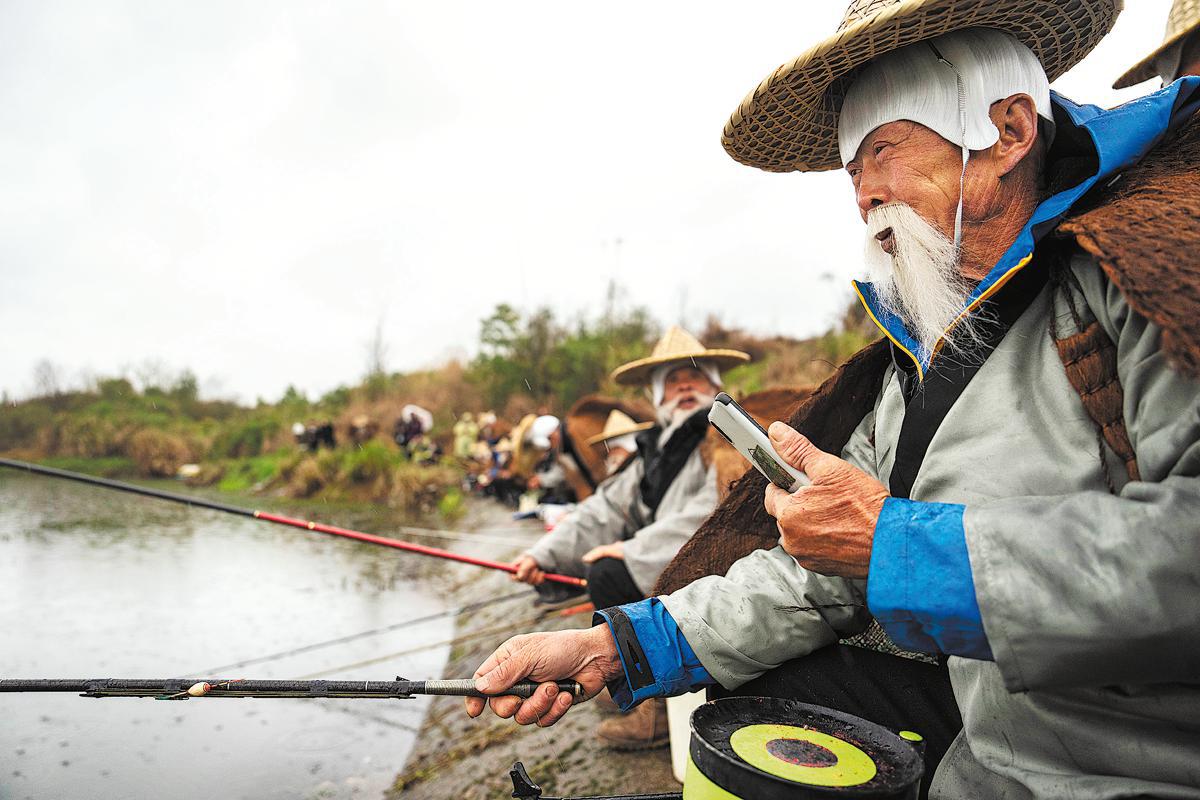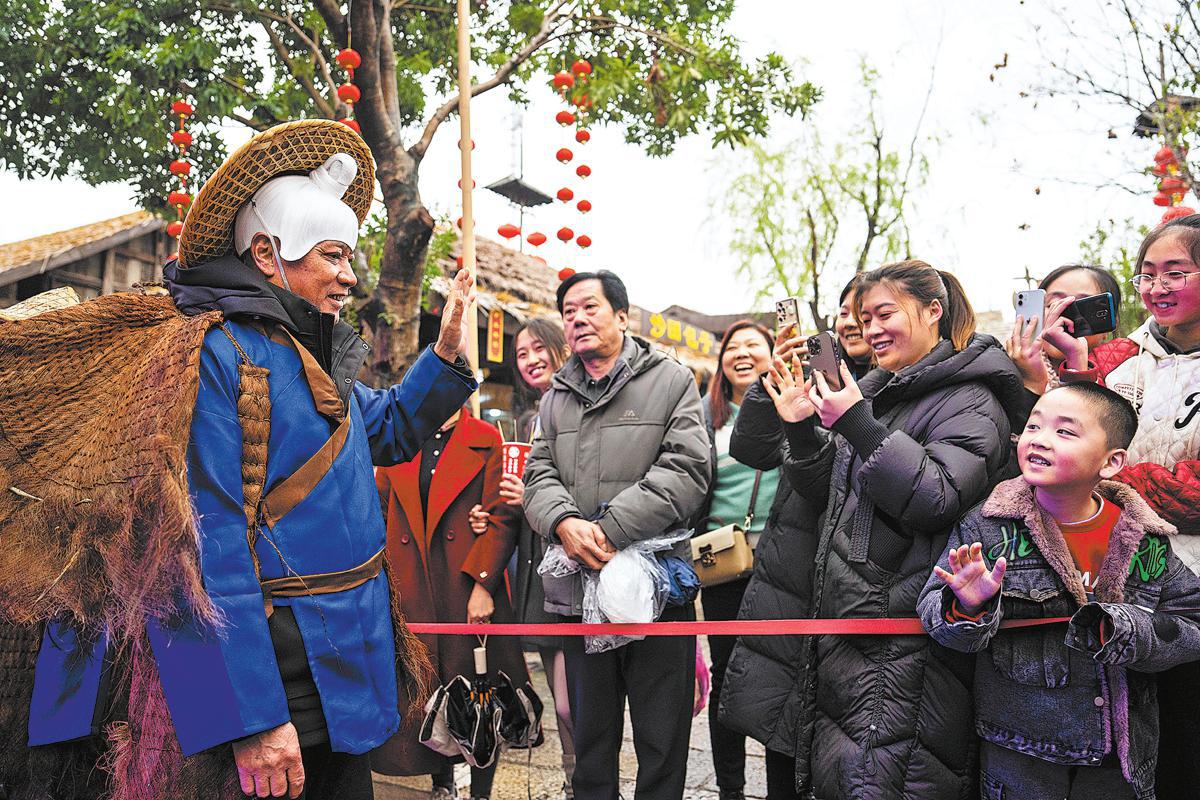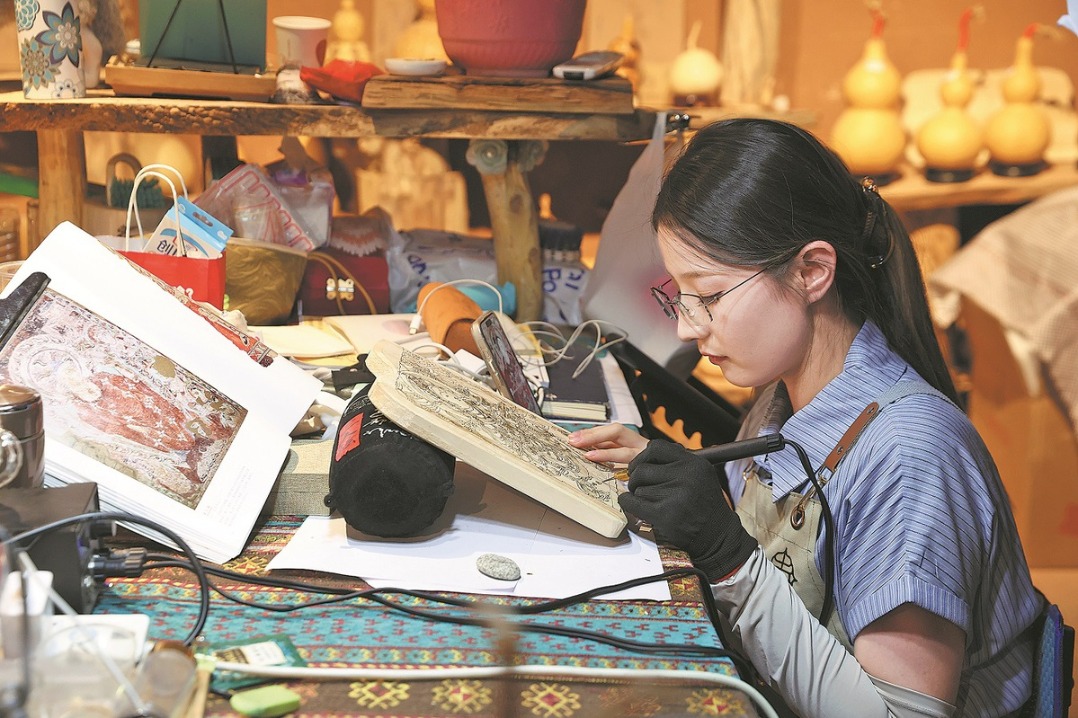Many takers for 'Wild Man' post in national park


A recent advertisement recruiting "Wild Men" with a daily wage of 500 yuan ($69.6) per person in Shennongjia Forestry District, Hubei province, has proved a hit online, attracting about 10,000 job seekers.
The advertised post is for non-player characters (NPCs) — more commonly known as actors or actresses — who can behave like wild men to provide an immersive and interactive experience for tourists.
The Shennongjia National Park is famous for its legend of wild men, who are said to be approximately 2 meters tall, covered in reddish-brown hair, move swiftly and emit a sound resembling a low "woo woo" cry.
According to the advertisement, the NPCs should wear wild men attire, patrol on the attraction and occasionally perform abstract dances. They are strictly restrained from speaking in front of tourists; they can only utter "woo woo woo" sounds. They should be able to live in the wild for a long time, and accept being fed by visitors, with a preference for those willing to eat raw food.
The post is open to all ages and gender as long as they have a healthy body. Both extroverts and introverts can apply. Those who are under great pressure, want to act out their real nature or simply find a place to zone out are welcomed, it said.
They should also record the stories of being a wild man through videos with hidden cameras, according to the advertisement.
Currently, potential candidates are being recruited through fan groups on short-video platforms. Over 20 fan groups have already been established, each with 500 members, totaling around 10,000 participants. However, only 16 people will be recruited.
The work period is from July to August, with accident insurance offered, but those selected will have to arrange their own food and accommodation. "You may bring your own tent and gather daily necessities independently (except for protected animals and plants), and you should run if confronting unknown creatures," the advertisement said.
A netizen commented on Sina Weibo: "Who can refuse a job that can be mad and earn money?" Under a related video with some 13,000 views on Xiaohongshu, also known as RedNote, a lifestyle-sharing platform, a netizen commented: "I'm willing to pay 500 yuan to play the wild man."
It's not uncommon for scenic areas to recruit NPCs.

Tanhe Ancient Town in Ningxiang city, Hunan province, announced it would recruit 100 Jiang Taigong, a famous sage during the Shang Dynasty (c.16th century-11th century BC), to go fishing along the river. The advertisement targets farmers aged 60 and older with a wage of 20 yuan per hour. Jiang is the major character in the novel Fengshen Yanyi (Investiture of the Gods), which is a theme of the attraction.
Taihang Wuzhi Mountain scenic area in Handan, Hebei province, offered 6,000 yuan per month to hire actors to play the Monkey King, with the main task being "eating while trapped under a mountain", a classic plot in the classical novel, Journey to the West.
Fu Maozheng, professor from the Hainan Vocational University of Science and Technology in Haikou, Hainan province, said this recruitment approach represents an exploration of "immersive scenario experiences" — transforming static landscapes into dynamic narratives through role-playing interactions.
"It not only satisfies tourists' demands for differentiated experiences but also injects youthful, socialized vitality into scenic areas," he said. Fu is also a member of the academic committee of the Hainan Provincial Cultural Tourism Integration Product Design and Industrial Development Research Base. He added that it also creates a number of flexible jobs.
Wang Jinwei, professor at the School of Tourism Sciences of Beijing International Studies University, said that recruiting NPCs is a marketing method to attract tourists' attention and increase the influence of attractions.
"It's also a way to dig into the cultural characteristics of scenic spots and promote them by transforming ideas and knowledge into perceptible and affable figures. Besides, it makes tourism more fun, like playing a game," he said.
However, attractions should consider if such gaming interprets history and culture correctly and if NPCs' interactions with tourists are appropriate, he added.
chenmeiling@chinadaily.com.cn
- Study links Arctic chemistry shift to ancient heatwave
- Top court unveils international tribunal guideline
- Chinese vice-premier calls for tech-driven industrial innovation in Hunan
- Xinjiang vlogger shares rose jam-making process
- When climate action gets creative
- 70 years on, sports power Xinjiang's journey of unity, vitality and openness





































